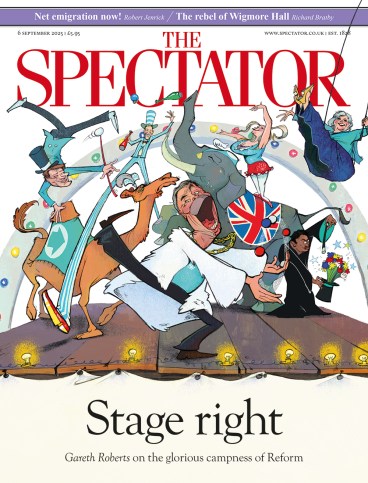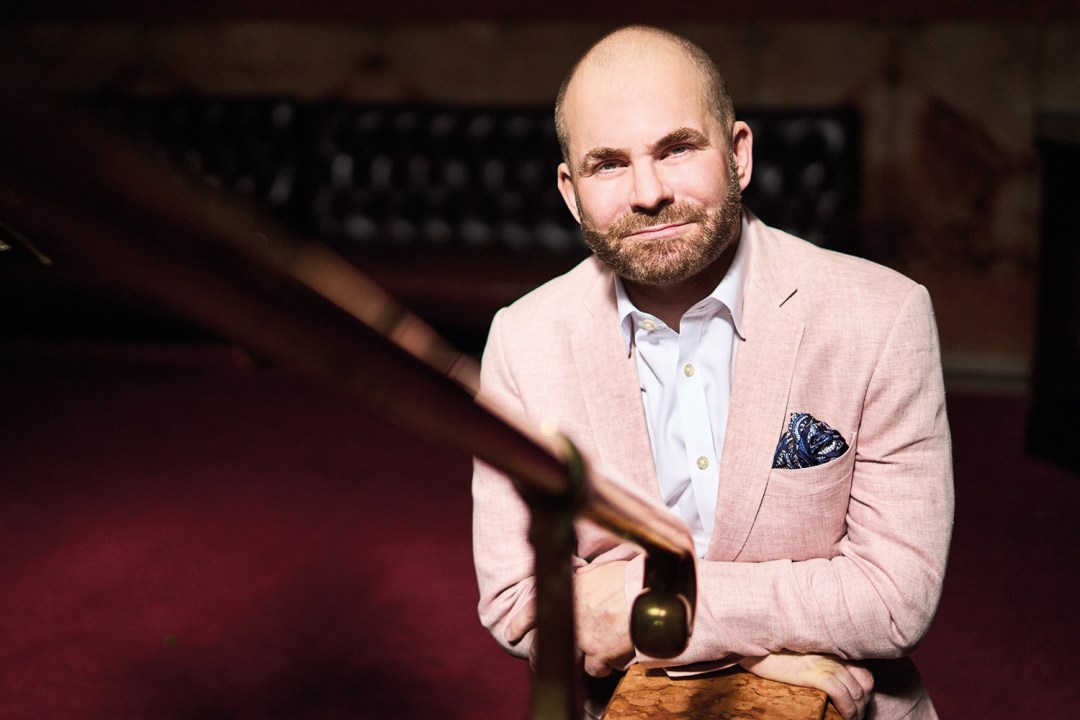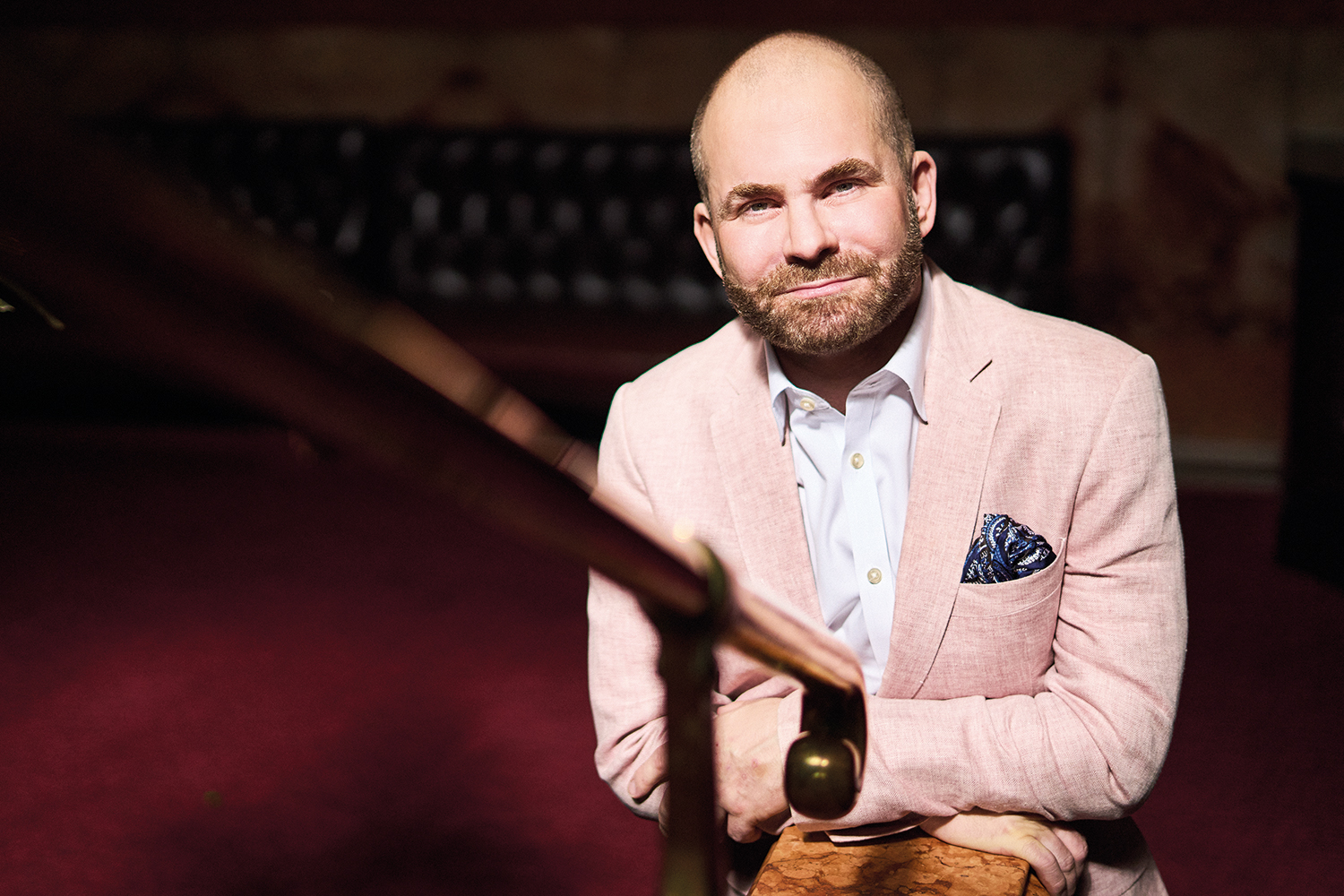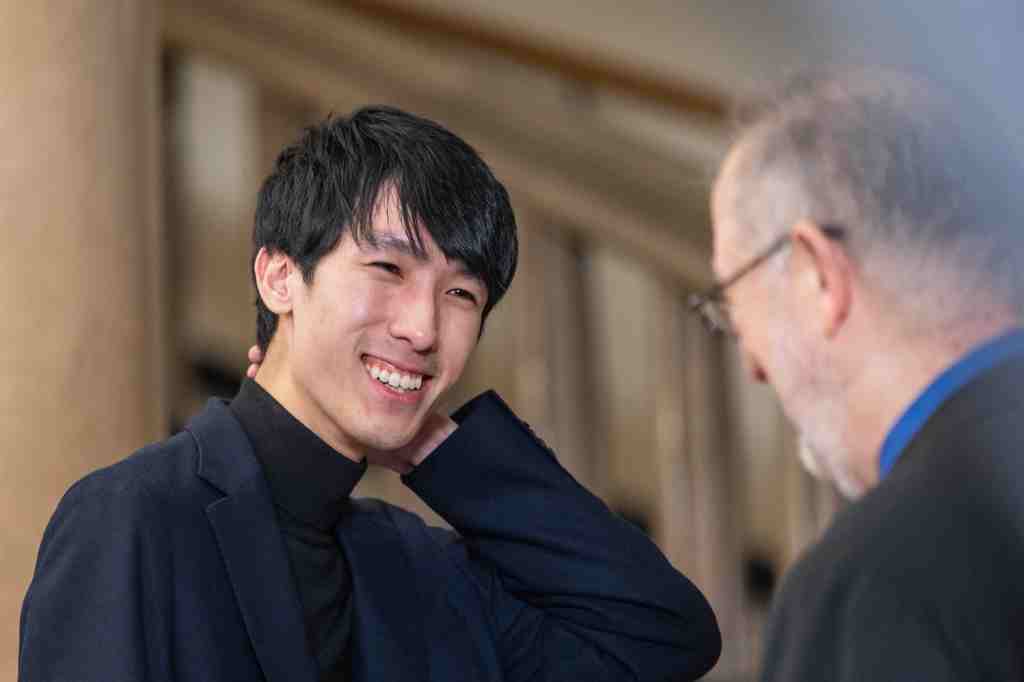
John Gilhooly is sick of talking about the Arts Council of England. ‘Please tell me you’re not going to ask about that,’ he groans. ‘I walked into an interview last week where it was only about that, and if I’d known I would’ve declined. There have got to be broader things now.’ That’s awkward; because in the (admittedly grey) world of UK arts funding, Gilhooly’s announcement in March that he was taking the concert hall he manages – the Wigmore Hall – out of the Arts Council’s funding portfolio has been the story of the year.
He’s dead right, though. We’re sitting in one of the world’s great music venues: an art-nouveau jewel just off Oxford Street, consecrated to Schubert, Beethoven and Bach. The Wigmore Hall is the London home of the string quartet, the solo piano and the song recital. And infinitely more, too; just upstairs, rehearsals are under way for a weekend of African music. Classical superstars such as Andras Schiff and the Takacs Quartet speak of the Wigmore Hall with unfeigned love, while younger artists take selfies by its door (a Wigmore debut is a landmark in any musical career). The Hall will be 125 years old next year and the celebrations begin this month; Gilhooly, too, is celebrating 20 years in the job. There are better things to discuss than a public spat with a committee of jargon-spouting quangocrats.
‘People were so angry with Nicholas Serota’s letter that we raised another £200,000 within a week’
But he does have one thing to add. ‘It’s a deep breath from me then,’ he says. ‘We’d been building up towards leaving the Arts Council’s portfolio. And it’s happened. We are out.’ The Wigmore’s successful campaign to raise £10 million and reclaim its artistic autonomy was a testament to the affection in which ‘the Wiggy’ is held, and to Gilhooly’s own leadership. A triumph of self-reliance, you might imagine: something for the Arts Council (ACE) to commend? Oh no. The Council’s chairman Nicholas Serota promptly released a passive-aggressive open letter, targeting Gilhooly by name. ‘It is our view that this isn’t good enough,’ he thundered, lest any other ACE clients should have the effrontery to try to snip the apron strings.
‘The response from them was sour,’ says Gilhooly. ‘The public beating-up. It was such an overreaction – how could we rattle cages that much? It was like we’d dropped a bomb, but they’d been told a year before that we were leaving. There was a suggestion that we were anti-public funding, which we’re not; and that we thought an Arts Council shouldn’t exist. We’ve never said that. This is not a substitute for national public funding. We know that we’re in a unique position. But it’s almost like they wanted to underplay our achievement, or to slap us for it.
‘For years, we were hand-to-mouth; it’s taken a huge amount of work to get here. And it’s not just because we’re in London: a lot of our money comes from the UK regions. They also suggested that we were anti-diversity, which we’re not. And as a human being, to be on the receiving end of…’ He pauses.
‘They didn’t need to make it so personal towards me. But I took it on the chin. The reality is that people were so angry with the letter that we raised another £200,000 within a week. There were people ringing us from around the country with donations, purely because the Arts Council had said, “John’s in charge of a rich London venue” and mocked our audience. So what? It’s irrelevant.’ Gilhooly has said before now that the Arts Council has ‘lost the confidence of classical music’. It’s hard to see his experience at the hands of the box-tickers mending many bridges. ‘There is a culture of fear,’ he agrees, ‘because look what happened. We were beaten up for speaking out, for moving on.’
Still, as he says, it’s irrelevant. After two decades on Wigmore Street, he’s specially proud of the way the Hall’s audience has grown and evolved. Like all stereotypes, the old reputation of the Wigmore as a clubhouse for Hampstead’s mitteleuropean music-lovers – nirvana for the kind of classical geek who carries miniature scores in a crumpled Tesco bag – had, and still has, a grain of truth. But these days, it’s a microscopic one. ‘It’s an easy cliché,’ says Gilhooly.
‘But it’s almost like people are refusing to acknowledge what’s in front of them. Two hundred thousand young people under the age of 35 have come to concerts here in the past eight years, and 60 per cent are returning, which is incredible. It’s through our own under-35s scheme, which we run with Classic FM, and it’s interesting that most of them are not music students. They’re young people studying or working in London. One couple told us they couldn’t afford both the babysitter and concert seats, until we introduced the subsidy. And then they could.’
Above all, there’s the music, and for Gilhooly, the opportunity to plan a pair of 125th anniversary seasons with – effectively – the pick of the world’s greatest chamber musicians. The names that have been released already are enough to make any fan salivate. Mitsuko Uchida, Matthias Goerne, Christian Tetzlaff and Martha Argerich; jazz from Fred Hersch, and Bach from Les Arts Florissants. There’s a series of anniversary commissions, residencies for composer Thomas Larcher and the Kanneh-Mason family, and a belated Wigmore debut from Canadian soprano-extraordinaire Barbara Hannigan.
‘There are pillars which keep this place up: Beethoven, Schubert and so on,’ says Gilhooly. ‘Anybody who programmes only according to their own ego will fail. But of course, a majority of the music – probably 60 per cent – is what I love myself. And then I look at what’s missing, how we can move things on.’
One way in which Gilhooly plans to move things on is likely to ruffle some feathers: from early next year he plans to trial surtitles for song recitals. Expect massed handbag-clutching from the purists; even today, there are still opera-goers who disdain this liberating technology. But we can’t all be omnilingual, and in no art form is the union between words and music more subtle, or intimate, than in classical song. Surtitles are an imperfect solution, but they’re the best we have, and as Gilhooly sees it, the survival of an artform is at stake.
‘Two hundred thousand young people under the age of 35 have come to concerts here in the past eight years’
‘Some people might complain, but I’m afraid it will fall on deaf ears because we’ve got to do it. We are the last bastion of the song recital – not just in London, in the world. We’re doing 70-plus recitals a year of classical song. If you look at Vienna, it’s 12 to 16 across the city. In Paris, ten. In Berlin, it’s a bit better, but no more than 20. We’ve found that our new audiences love solo piano programmes. They love early and baroque music, and counter-tenors. But they’re not as keen on song recitals, and that is because of the language barrier.’ The surtitle projectors were installed last month.
‘We’ve been planning this for a long time and it’s going to be very elegantly done, with no screen – the words will be projected on the wall. We’re going to need experts in Czech, Russian, German, Latvian, you name it: sometimes a recital will include 24 songs in four different languages. It’s a big challenge. But I think this is an essential investment in the future of lieder. And if we don’t do it – if we fall – then the rest of Europe falls. That’s not being arrogant, that’s just a fact.’
Fighting talk; but when you believe in something, you fight. Gilhooly has already faced down the ACE. Might London’s most civilised music venue have the answers that classical music needs if it is to claim the audience that is undoubtedly there, as well as the freedom that – for any serious art – is even more vital than subsidy? ‘You need to stretch your audience,’ he says.
‘But that doesn’t mean throwing everything out, and the Wigmore Hall will always be a venue where we respect the traditions of chamber music. Intimate music-making, where the musicians are all equally valid, and which brings us into the conversation as audience members. So, that school of music-making, at the highest possible international level. Doing a job like this, I’ve had to put my own prejudices to one side, because prejudices just hamper you as an artistic director. But you’ve still got to set the standards.’
The new season at the Wigmore Hall, Wigmore Hall 125, starts on 9 September.








Comments